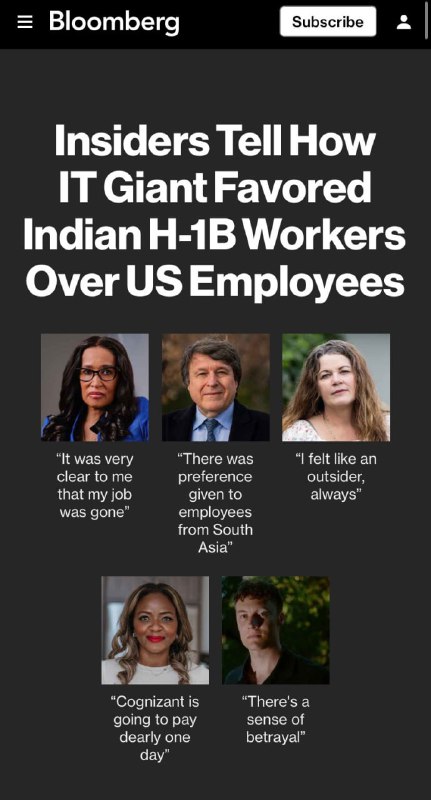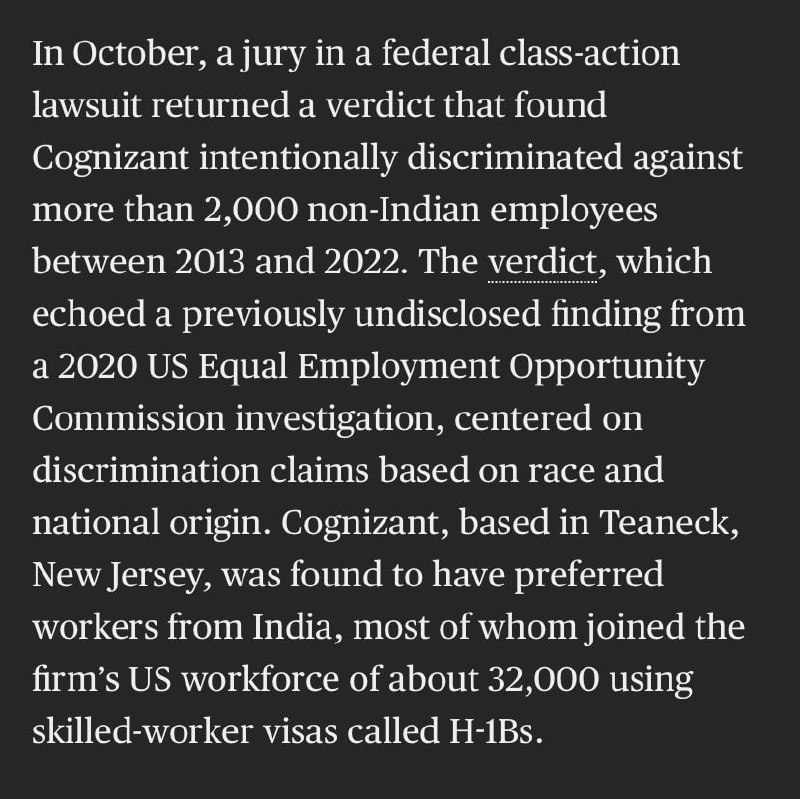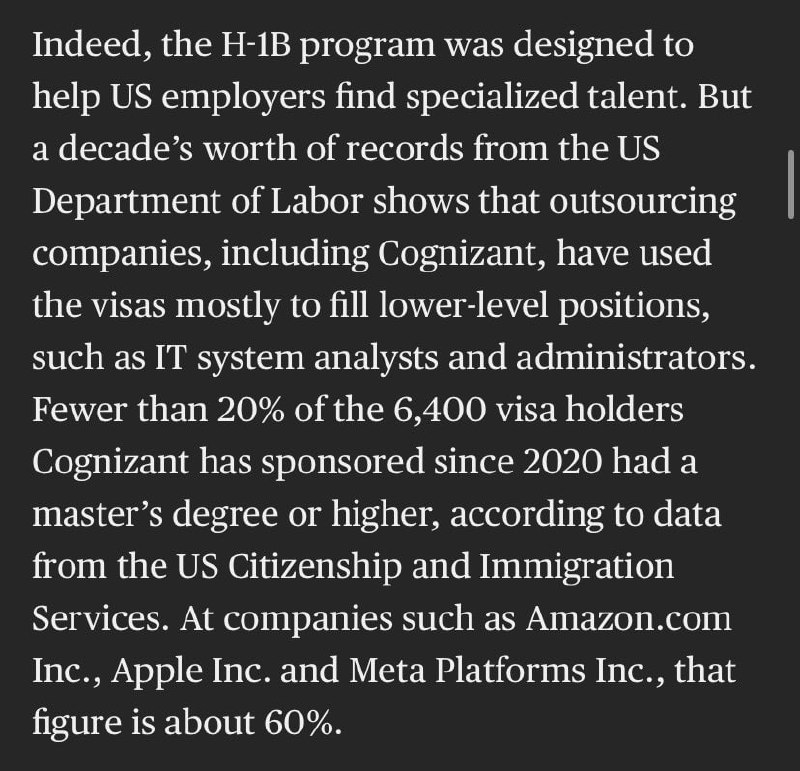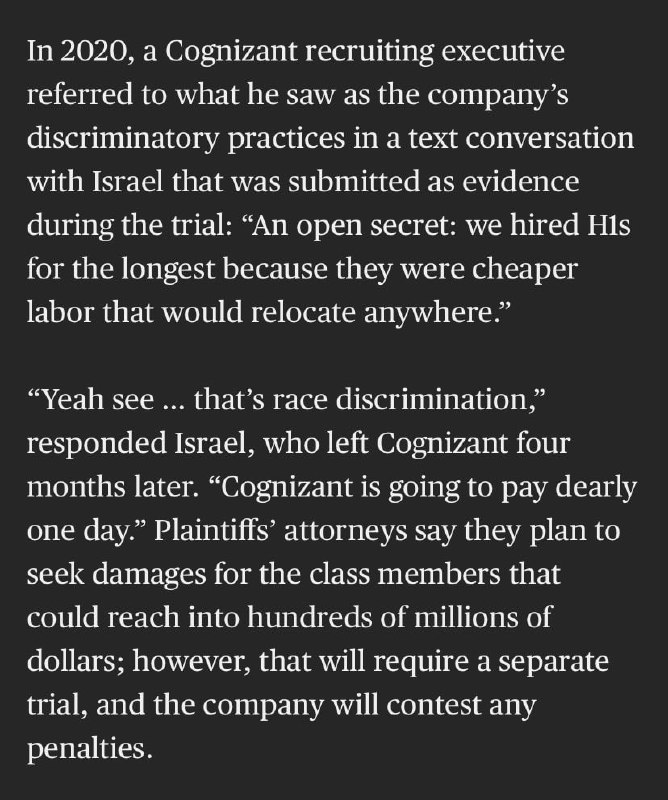group-telegram.com/volmemes/48119
Last Update:
IT outsourcing firm Cognizant has received 52k H1B visas since 2009, more than any other American company. Almost all went to Indians. In October a federal jury ruled the company had intentionally discriminated against more than 2,000 non-Indian employees employed from 2013-22.
American employees were replaced by cheaper Indian H1Bs more willing to relocate. Labor costs drove hiring, not skills. Fewer than 20 percent of H1Bs Cognizant sponsored since 2020 hold a masters degree or higher. IT companies use the visas to fill lower level roles.
In 2015 Cognizant executives panicked when a bill in Congress aimed to prevent companies with more than 50% of its workforce on H1B visas from receiving more. The former head of US recruitment at Cognizant says “the entire business model is built off cheap Indian labor.”
A former executive alleges that he was asked to sign hundreds of official H1B applications for assignments under him that did not exist. He claims he was fired after filing an internal complaint alleging discrimination against non-South Indian employees.
Insiders allege Cognizant keeps a reserve of H1B workers abroad and gives them preferred assignments in the US. Corporate prefers transferring workers from India to hiring an Americans. American workers train them and are terminated shortly thereafter.
In the past five years, the five largest IT outsourcing companies have all settled, lost, or are currently fighting similar discrimination lawsuits. Plaintiffs stand to win hundreds of millions of dollars. These are the “skilled workers” companies sponsor under the H1B program.







